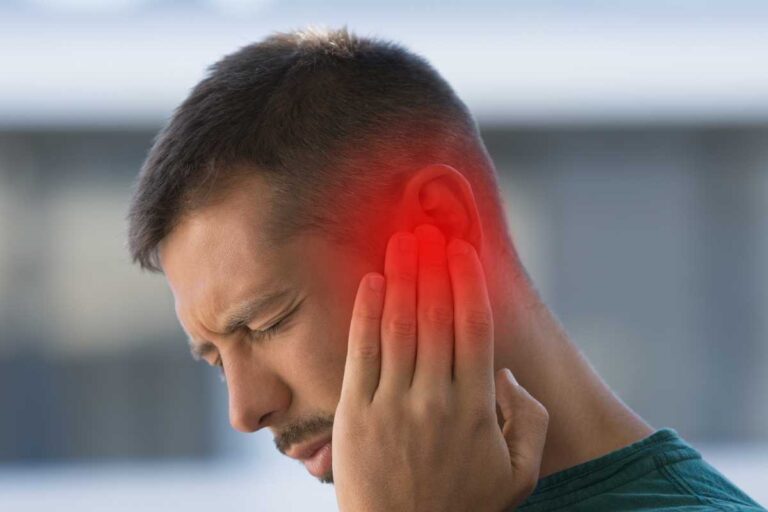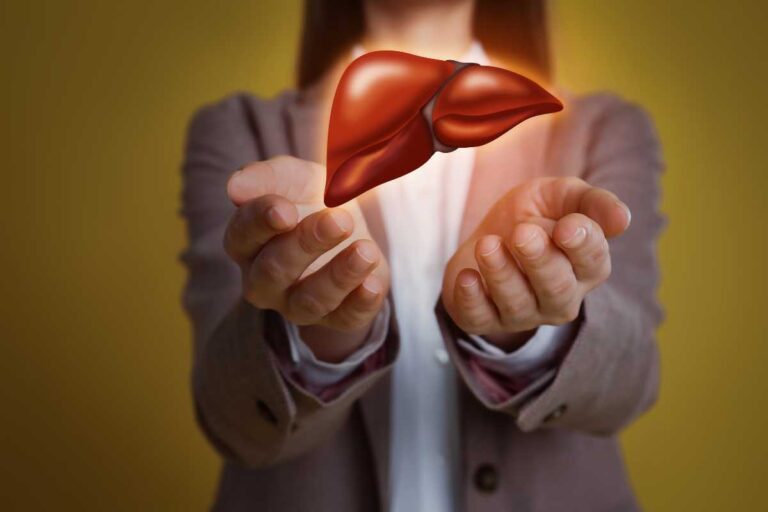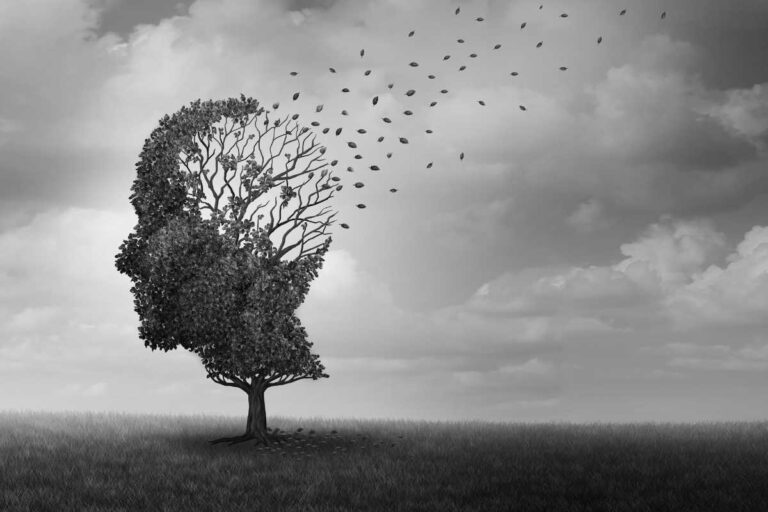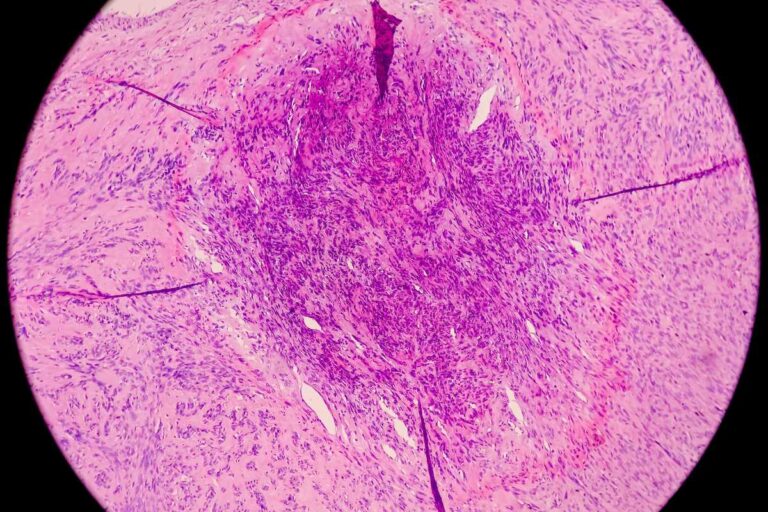Prophetic Medicine for Hair Fall: Islamic Remedies for Healthy Hair
Prophetic Medicine for Hair Fall: Islamic Remedies for Healthy Hair

The ancient wisdom of prophetic medicine offers a treasure trove of natural remedies for various health concerns. In the realm of hair health, these age-old practices hold valuable insights and solutions to combat hair fall.
Drawing inspiration from Islamic tradition and the teachings of Prophet Muhammad, individuals can explore the benefits of incorporating prophetic medicine into their hair care routines.
Prophetic medicine emphasizes a holistic approach to well-being, considering the interconnectedness of mind, body, and spirit. Within this framework, hair is viewed as an integral part of overall health and beauty.
By delving into the teachings and practices advocated by the Messenger, individuals can discover effective remedies that promote vibrant hair growth while addressing underlying issues such as scalp conditions or hormonal imbalances.
This article aims to delve into the topic of prophetic medicine for hair fall, shedding light on its historical significance and practical applications in modern times.
By exploring this fascinating field rooted in ancient traditions, readers can gain insights into natural solutions that nurture not only their hair but also their overall well-being.
Factors that can cause hair fall with percentage:
| Factor | Percentage |
|---|---|
| Poor nutrition | 30% |
| Hormonal imbalances | 25% |
| Stress | 20% |
| Scalp infections | 15% |
| Excessive styling | 10% |
Note: The percentages mentioned above are approximate and may vary based on individual circumstances.
“Explore our latest articles on Prophetic Medicine to discover simple, natural remedies that can improve your health. Check them out now and start feeling better!“
Understanding Hair Loss in Islamic Tradition
Hair loss is a common issue that affects millions of people worldwide, causing not only physical changes but also impacting self-esteem and confidence. In Islamic tradition, hair loss holds significant importance, and understanding its causes and remedies can provide valuable insights for those seeking solutions to this problem.
In Islamic culture, hair is considered an adornment and a symbol of beauty. It is often associated with youthfulness, vitality, and good health. Hence, experiencing severe hair loss or baldness can be emotionally distressing for individuals as it may affect their perception of self-image.
According to Islamic beliefs, several factors contribute to hair fall. One of the primary causes is the weakening of the hair shaft due to nutritional deficiencies or improper care.
The Prophet Muhammad (peace be upon him) emphasized the importance of maintaining good health and hygiene as part of prophetic medicine. Neglecting one’s health can lead to various ailments, including hair loss.
Prophetic medicine offers holistic solutions to address hair loss issues based on natural remedies mentioned in Islamic teachings. These remedies focus on nourishing the body from within while promoting overall well-being. For instance:
- A balanced diet: The Prophet Muhammad (peace be upon him) encouraged his followers to consume wholesome foods that are beneficial for both physical and spiritual health. Incorporating nutrient-rich foods such as fruits, vegetables, whole grains, lean proteins, and healthy fats into one’s diet can promote healthy hair growth.
- Herbal treatments: Islamic tradition emphasizes the use of herbs for medicinal purposes. Certain herbs like black seed oil (Nigella sativa), fenugreek seeds (Trigonella foenum-graecum), and olive oil have been recommended for strengthening the hair follicles and preventing excessive shedding.
- Stress management: Stress is known to contribute to hair loss by disrupting hormonal balance in the body. Prophetic medicine advocates practices such as prayer, meditation, and seeking solace in the remembrance of God to alleviate stress and promote overall well-being.
- Proper hair care: Islamic tradition emphasizes cleanliness and grooming. Following prophetic practices such as regular washing, using a natural bristle brush, avoiding excessive heat styling, and protecting the hair from harsh environmental factors can help prevent damage and minimize hair loss.
By understanding the significance of hair loss in Islamic culture and exploring the remedies offered by prophetic medicine, individuals experiencing hair fall can adopt a holistic approach to address this issue. Incorporating these practices into their daily routine can not only promote healthier hair but also contribute to overall physical and spiritual well-being.
Remember, seeking professional advice is essential for severe cases of hair loss to identify underlying medical conditions that may require specialized treatment.
Islamic Remedies for Hair Loss
Hair fall is a common concern for many individuals, and seeking remedies that align with one’s faith can be comforting. Islamic scholars have recommended various herbal treatments and traditional practices as part of prophetic medicine to combat hair loss.
Herbal Treatments
Prophetic medicine emphasizes the use of natural ingredients to promote overall well-being, including hair growth. Several herbs have been recommended by Islamic scholars for combating hair fall:
- Black Seed: Also known as Nigella Sativa, black seed has long been praised for its numerous health benefits. It contains essential fatty acids and antioxidants that nourish the scalp, strengthen hair follicles, and stimulate growth.
- Henna: Widely used for centuries in Islamic cultures, henna not only adds a beautiful reddish tint to the hair but also strengthens it from the roots. Regular application of henna paste can reduce hair fall while providing a natural conditioning effect.
- Nil Sari Rutubet: This herbal blend consists of various plants such as olive leaves, rosemary, lavender, and nettle. When used as a rinse after washing the hair, nil sari rutubet helps prevent breakage and promotes healthy growth.
Traditional Practices
Islamic traditions encompass holistic approaches to health and well-being beyond herbal treatments alone. Consider exploring these traditional practices:
- Cupping Therapy (Hijama): Hijama is an ancient practice recommended by Prophet Muhammad (peace be upon him). While primarily known for its therapeutic benefits on other ailments, hijama can also improve blood circulation in the scalp area when performed correctly by trained professionals.
- Ghusl: Ghusl refers to the ritual purification bath performed after certain events or conditions in Islam. During ghusl, massaging the scalp gently with fingers can stimulate blood flow to the hair follicles, promoting hair growth.
Divine Supplications
In addition to herbal remedies and traditional practices, seeking divine intervention through supplications (dua) is an integral part of Islamic belief. Muslims often turn to Allah (SWT) for assistance in their various concerns, including hair loss.
While there are no specific duas solely dedicated to hair fall, one can make heartfelt prayers (duas) for overall well-being and the resolution of any health issues.
It is important to remember that while these remedies and practices have been recommended by Islamic scholars, individual results may vary. Consulting with a healthcare professional or a trusted religious authority can provide personalized guidance based on your specific circumstances.
By incorporating these herbal treatments, traditional practices, and divine supplications into your routine, you can take proactive steps towards addressing hair fall while staying true to your faith. May Allah (SWT) grant you success in your endeavors for healthy hair and overall well-being.
Benefits of Medicinal Plants for Alopecia Treatment
Alopecia, or hair loss, can be a distressing condition that affects both men and women. While there are various treatments available in the market, many people are turning to natural remedies derived from medicinal plants to combat this issue.
Uncover the Healing Properties of Medicinal Plants Commonly Used in Treating Alopecia
Medicinal plants have been used for centuries in traditional medicine systems around the world to treat various ailments, including hair loss. These plants contain bioactive compounds that can promote hair growth and improve scalp health. Let’s take a closer look at three powerful herbs known for their effectiveness in combating alopecia:
- Black Seed: Also known as Nigella sativa, black seed has long been recognized for its therapeutic properties. It contains essential fatty acids, vitamins, minerals, and antioxidants that nourish hair follicles and stimulate regrowth. Black seed oil can be massaged onto the scalp or consumed orally as a supplement.
- Aloe Vera: Aloe vera is renowned for its soothing and moisturizing properties but is also beneficial for promoting hair growth. The plant’s gel contains enzymes that repair damaged cells on the scalp while stimulating dormant follicles. Applying fresh aloe vera gel directly to the scalp or using aloe vera-based shampoos can help combat alopecia.
- Fenugreek: Fenugreek seeds have been used in Ayurvedic medicine to address hair loss concerns effectively. Rich in proteins and nicotinic acid, fenugreek seeds strengthen hair roots and prevent breakage while promoting new growth. Soaking fenugreek seeds overnight and grinding them into a paste to apply on the scalp can yield positive results.
Learn How Herbs Like Black Seed, Aloe Vera, and Fenugreek Can Help Stimulate Hair Regrowth
The healing properties of black seed, aloe vera, and fenugreek can help combat hair loss and stimulate regrowth through various mechanisms:
- Black seed provides nourishment to the hair follicles, promoting healthy growth.
- Aloe vera’s enzymes repair damaged cells on the scalp, creating an optimal environment for hair regrowth.
- Fenugreek seeds strengthen hair roots and prevent breakage while stimulating new growth.
Incorporating these herbs into your daily routine can yield significant benefits. Here are some ways you can do so:
- Topical application: Massage black seed oil onto the scalp or apply fresh aloe vera gel directly to the affected areas. Leave it on for a few hours before rinsing off.
- Herbal infusions: Prepare a fenugreek seed infusion by soaking them in water overnight. Strain the seeds and drink the infused water in the morning on an empty stomach.
- Natural shampoos and conditioners: Look for hair care products that contain black seed oil, aloe vera extract, or fenugreek as key ingredients.
Prophet Muhammad’s Teachings on Hair Care
Prophet Muhammad (pbuh) not only provided guidance on matters of faith and spirituality but also offered valuable teachings on various aspects of life, including hair care. His recommendations emphasize the importance of maintaining healthy and beautiful hair through proper care, reflecting the holistic approach to well-being found in Islamic teachings.
Discover Prophet Muhammad’s guidance on maintaining healthy and beautiful hair through proper care.
The Prophet (pbuh) emphasized the significance of cleanliness and hygiene in Islam. This extends to hair care as well. According to the teachings of Prophet Muhammad (pbuh), it is essential to keep one’s hair clean and well-groomed.
Regular washing helps remove dirt, excess oil, and impurities that can lead to scalp issues such as dandruff or hair fall.
To maintain healthy hair, the Prophet (pbuh) recommended using natural ingredients for washing and conditioning. He encouraged the use of herbal remedies like henna, amla, or olive oil for nourishing and strengthening the hair.
These natural products provide vital nutrients that promote hair growth while keeping it soft and shiny.
Learn about his recommended grooming practices that promote strong and nourished hair.
In addition to cleanliness, Prophet Muhammad (pbuh) also advised Muslims to take proper care of their hair by avoiding excessive heat or chemical treatments that may damage it. He encouraged moderation when styling or applying heat to prevent dryness and breakage.
Furthermore, following the Sunnah (the way of the Prophet) includes growing a beard for men. The beard holds spiritual significance in Islam, symbolizing masculinity and adherence to religious principles.
The Prophet (pbuh) took great care of his own beard, maintaining its cleanliness by washing it regularly.
For women who wear hijab or headscarves as an expression of modesty, caring for their hair becomes even more important. Properly moisturizing the hair beneath hijabs helps prevent dryness and hair fall.
The Prophet (pbuh) advised women to oil their hair regularly and keep it covered when going outdoors to protect it from environmental factors that can cause damage.
Understand the spiritual significance attached to caring for one’s appearance as per Islamic teachings.
Prophet Muhammad (pbuh) emphasized the importance of maintaining a presentable appearance, as it reflects a person’s inner state and commitment to faith. Caring for one’s hair is considered an act of self-respect and gratitude for the blessings bestowed upon us by Allah.
By following the Prophet’s teachings on hair care, Muslims not only maintain physical cleanliness but also cultivate a sense of spirituality. It is a way to honor oneself, respect others, and demonstrate adherence to the Sunnah.
Natural Solutions for Strengthening Hair Roots
Weak hair roots can be a common cause of hair fall, but there are natural remedies that can help strengthen them and prevent further loss. Prophetic medicine offers valuable insights into promoting strong roots through simple techniques and essential vitamins and minerals. Let’s explore these natural solutions to improve the health of your hair.
Scalp Massages and Hot Oil Treatments
One effective technique to strengthen weak hair roots is regular scalp massages. Massaging your scalp stimulates blood circulation, which in turn nourishes the hair follicles and promotes growth. You can use your fingertips or a soft brush to gently massage your scalp in circular motions for a few minutes each day.
Another beneficial practice is hot oil treatments. Heat helps open up the pores on your scalp, allowing the oil to penetrate deeply and provide nourishment to the roots. Warm some coconut oil or olive oil and apply it to your scalp, massaging it in with gentle strokes. Leave it on for about 30 minutes before rinsing it off with a mild shampoo.
Essential Vitamins and Minerals
According to prophetic medicine, certain vitamins and minerals play a crucial role in strengthening hair roots. Incorporating these nutrients into your diet can help promote healthy hair growth:
- Vitamin E: This antioxidant vitamin improves blood circulation in the scalp, ensuring adequate nutrient supply to the roots. Foods rich in vitamin E include almonds, spinach, sunflower seeds, and avocados.
- Biotin: Also known as vitamin B7 or H, biotin helps strengthen weak hair follicles by supporting keratin production. Include foods like eggs, nuts, whole grains, and bananas in your diet for a biotin boost.
- Zinc: Zinc deficiency is often associated with hair loss as it plays an essential role in DNA synthesis and cell division – critical processes for healthy root development. Increase your intake of zinc by consuming foods like oysters, pumpkin seeds, and lentils.
- Iron: Insufficient iron levels can lead to hair thinning and loss. Consume iron-rich foods such as lean meats, legumes, leafy greens, and fortified cereals to maintain healthy roots.
Herbal Remedies
Prophetic medicine also highlights the benefits of certain herbs and seeds in strengthening weak hair roots:
- Black seed oil: Derived from Nigella sativa seeds, black seed oil has been traditionally used to promote hair growth. Apply a few drops of this oil to your scalp and massage it in for optimal results.
- Fenugreek seeds: Soak fenugreek seeds overnight and grind them into a paste. Apply this paste to your scalp and leave it on for 30 minutes before rinsing off with water. Fenugreek seeds are believed to nourish the roots and prevent hair fall.
- Amla: Amla or Indian gooseberry is rich in vitamin C, which helps strengthen hair follicles. Mix amla powder with water to form a paste and apply it to your scalp. Leave it on for 20 minutes before washing it off.
By incorporating these natural solutions into your hair care routine, you can strengthen weak roots and prevent further hair loss.
Nutrition and its Role in Prophetic Medicine for Hair Health
Importance of a Balanced Diet
Maintaining healthy hair goes beyond using external products; it starts from within. A balanced diet plays a crucial role in promoting hair growth and preventing hair fall. When you educate yourself on the significance of nutrition, you’ll realize how certain vitamins and minerals can work wonders for your hair.
The Prophet Muhammad (peace be upon him) emphasized the importance of consuming wholesome foods to maintain overall well-being, including healthy hair. By following his teachings, we can adopt a holistic approach to tackle issues like hair fall.
Foods Recommended in Prophetic Medicine
Prophetic medicine suggests specific foods that are beneficial for promoting hair growth and preventing hair fall. These recommendations are backed by their nutritional value and their ability to nourish the scalp and strengthen the strands.
- Dates: Known as “rutab” or “tamr,” dates are highly recommended in prophetic medicine due to their various health benefits. They contain essential nutrients like vitamins A, B, C, and E, which promote healthy hair growth.
- Olives: Olive oil is often praised for its numerous health benefits, including its positive impact on hair health. The Prophet Muhammad (peace be upon him) recommended consuming olives regularly.
- Honey: Honey is considered a superfood in prophetic medicine due to its rich nutrient profile. It contains antioxidants that help combat free radicals and promote scalp health.
- Black Seed Oil: Also known as “habbatus sauda,” black seed oil has been used since ancient times for its medicinal properties. It is believed to strengthen the roots of the hair, preventing excessive shedding.
By incorporating these foods into your diet, you provide your body with essential vitamins such as vitamin A, B-complex vitamins (including biotin), vitamin C, and vitamin E – all vital for healthy hair growth.
Significance of Hydration
In addition to a balanced diet, hydration plays a significant role in maintaining optimal hair health. Drinking an adequate amount of water throughout the day ensures that your body and scalp are properly hydrated.
Water helps transport essential nutrients to the hair follicles, promoting their growth and preventing dryness. It also aids in flushing out toxins from the body, allowing for healthier hair growth.
To ensure proper hydration:
- Drink at least 8 glasses (64 ounces) of water per day.
- Consume hydrating foods such as cucumbers, watermelon, and oranges.
- Limit the intake of dehydrating beverages like caffeinated drinks and alcohol.
By prioritizing hydration alongside a nutritious diet, you provide your hair with the ideal environment for growth and strength.
Embracing Prophetic Medicine for Vibrant Hair
Understanding hair loss in Islamic tradition, we discovered the remedies recommended by Islamic teachings and the benefits of medicinal plants in treating alopecia. We also delved into Prophet Muhammad’s teachings on hair care and explored natural solutions to strengthen hair roots. Lastly, we discussed the role of nutrition in prophetic medicine for maintaining healthy hair.
Now that you are aware of these valuable insights from prophetic medicine, it is time to put them into practice. Embrace the wisdom passed down through generations and incorporate these natural remedies into your daily routine. By doing so, you can nourish your hair from within and promote its vibrancy and strength.
FAQs
Are these remedies suitable for all types of hair?
Yes, the remedies derived from prophetic medicine are generally suitable for all types of hair. However, it is essential to consider any individual sensitivities or allergies before using specific ingredients or herbs. If you have any concerns about compatibility with your hair type or existing conditions, it’s advisable to consult a healthcare professional or a knowledgeable expert.
How long does it take to see results when using prophetic medicine for hair fall?
The timeline for seeing results may vary depending on various factors such as the severity of your condition and consistency in following the recommended remedies. While some individuals may notice improvements within weeks, others may require several months of consistent application before observing significant changes. Patience and persistence are key when adopting these natural approaches.
Can I use modern medical treatments alongside prophetic medicine?
Certainly! Prophetic medicine can complement modern medical treatments for hair fall. It is always wise to consult with a healthcare professional who can provide personalized advice considering your unique circumstances. They will guide you on how to integrate both traditional remedies and modern treatments effectively.
Are there any side effects associated with prophetic medicine remedies?
Prophetic medicine remedies generally rely on natural ingredients, which tend to have fewer side effects compared to synthetic alternatives. However, individual reactions may vary. It is crucial to perform a patch test before applying any new remedy and discontinue use if you experience any adverse effects. If you have pre-existing medical conditions or are taking medications, it is advisable to consult with a healthcare professional before using these remedies.
Can prophetic medicine prevent hair loss altogether?
While prophetic medicine offers valuable insights and remedies for maintaining healthy hair, it cannot guarantee the complete prevention of hair loss in all cases. Hair loss can result from various factors such as genetics, hormonal imbalances, and underlying health conditions. Prophetic medicine can help strengthen and nourish the hair but may not be able to address all potential causes of hair loss.







